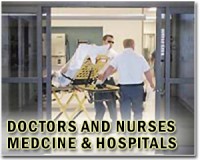 |
Singapore (AFP) Sept 26, 2010 When she was growing up, Chua Huiling always wondered why her grandmother's doctor used no stethoscope but just a pair of chopsticks commonly found in any Chinese Singaporean household. Huiling had no idea what kind of treatment he administered but it was obviously effective because her grandmother always recovered from her ailments after seeing the physician. The 24-year-old finally has her answers after completing a five-year double degree programme in biomedical sciences and Chinese medicine, including two years of intensive training in Beijing. "In the past, I was wondering why he poked her here and there," Chua told AFP in an interview at Singapore's Nanyang Technological University (NTU), which offers the unique bilingual programme. "Now I understand," said Chua, part of the pioneer batch of 59 students who recently completed the course, which is conducted in English and Mandarin. "He was actually pressing her acupoints," she added, referring to key parts of the body believed to control various functions such as heartbeats. The NTU describes the programme as an innovative "East Meets West" scheme through which students get to learn 21st century biomedical sciences and the ancient healing techniques of Traditional Chinese Medicine (TCM). At the Beijing University of Chinese Medicine, the students spend the final two years of the programme undergoing clinical training, learning advanced TCM principles and serving out hospital internships. They discover the secrets of medicinal herbs along with acupuncture and tui-na, a form of massage therapy. They are also trained to diagnose a patient's ailments through pulse reading and are taught how to prescribe the correct dosage of herbal medication. The double-degree programme is the brainchild of James Tam, a Hong Kong-born US national who sees the course as one way of bringing the best out of Western science and TCM to treat modern ailments. "There is really no (other) formal programme at the university level and we believe this is the first one that is bilingual," Tam, the founding dean of NTU's school of biological sciences, told AFP in an interview. "The history of modern medicine is pretty short but traditional Chinese medicine has been in use for more than a couple thousand years." Eu Yan Sang International, a major TCM retail chain in the region, started giving out up to three scholarships to selected students in 2008. Each scholarship is worth 42,100 Singapore dollars (31,505 US), which is used to support the student's final two years of study in Beijing. The Singapore-based company, which has over 150 stores across Asia selling Chinese medicine and herbs, sees the scholarships as a way of producing the next generation of TCM physicians. "They are the next generation and they will also be able to relate to the next generation of patients," said Caryn Peh, vice president for care delivery with Eu Yan Sang International. Upon graduation, the scholars are required to spend three years with the company, where they will get first-hand experience working at clinics with guidance from experienced TCM physicians. In parts of Asia with a large ethnic Chinese community, the popularity of TCM has remained strong despite the easy availability of Western medicine and Western-trained doctors. Ong Yi Ting, also a student from the pioneer batch, confessed she was a sceptic about TCM but she now shuns painkillers to ease her migraines, applying acupuncture on herself instead. "In TCM, the concept of balance is very important," she said. "That's why TCM is mythical to most people, it's very hard for people to understand its concepts," she said. "I believe TCM can be applied more widely and it can be a good solution for a lot of chronic illnesses we face today."
Share This Article With Planet Earth
Related Links Hospital and Medical News at InternDaily.com
 Shortage of medical isotopes a concern
Shortage of medical isotopes a concernBoston (UPI) Sep 8, 2010 A global shortage of radioactive isotopes used in medical scans and treatments could jeopardize patient care and drive up healthcare costs, scientists say. The warning was delivered in a symposium at the annual meeting of the American Chemical Society in Boston, a society release said. "Although the public may not be fully aware, we are in the midst of a global shortage of medica ... read more |
|
| The content herein, unless otherwise known to be public domain, are Copyright 1995-2010 - SpaceDaily. AFP and UPI Wire Stories are copyright Agence France-Presse and United Press International. ESA Portal Reports are copyright European Space Agency. All NASA sourced material is public domain. Additional copyrights may apply in whole or part to other bona fide parties. Advertising does not imply endorsement,agreement or approval of any opinions, statements or information provided by SpaceDaily on any Web page published or hosted by SpaceDaily. Privacy Statement |